
Annual Report 2022
Welcome by Daniel Baril
Chair, UNESCO Institute for Lifelong Learning Governing Board
The UNESCO Institute for Lifelong Learning (UIL) celebrated its 70th anniversary in 2022. It was an opportunity to reflect not only on the foundation of UIL as an organization, but also on an educational project focused on the right to education for all and the value of a lifelong learning perspective. Over seven decades, UIL has focused on promoting learning that helps us live together more peacefully and cooperatively while also giving us the means to act together to make a better future.
This underlying principle could not be more relevant today, even if, in the last decade, the context of UIL’s work has changed dramatically. The impact of global warming is evident all around us. Demographic shifts – including population ageing and migration – challenge societies worldwide. The fast pace of changing labour markets creates uncertainty for workers and economies.
These trends affect all people around the world. Lifelong learning must be used as a foundation for transforming our societies. And education and learning systems themselves need to be transformed to respond to the challenges of our time. We need to foster a culture of lifelong learning and recognize lifelong learning as a human right.
2022 was the first implementation year for the new UIL Medium-Term Strategy. It could not have been a more powerful year for the promotion of lifelong learning. The Marrakech Framework for Action, adopted at the Seventh International Conference on Adult Education, organized in Marrakech by UIL in cooperation with UNESCO and the Kingdom of Morocco, is a milestone commitment of UNESCO Member States on the road to providing all adults with quality learning opportunities. It will guide us in our actions throughout the next decade. In addition, the wide variety of UIL capacity-building activities and research activities on diverse aspects of lifelong learning have strongly supported Member States on their path to lifelong learning for all during the past year.
I wish to thank the UIL Governing Board members for their guidance throughout 2022; UNESCO Director-General Audrey Azoulay, UNESCO Assistant Director-General for Education Stefania Giannini, and UIL’s Director, David Atchoarena, for their leadership; and the Institute’s staff for their quality work and commitment to lifelong learning.
I warmly invite you to learn more about UIL’s work in 2022 in this virtual annual report. I hope that you will enjoy reading it!

Welcome by David Atchoarena
Director, UNESCO Institute for Lifelong Learning
Our rapidly changing world demands opportunities to learn throughout life, for individual fulfilment, social cohesion and sustainability. Yet, for many, the promise of lifelong learning opportunities for all, as enshrined in Sustainable Development Goal 4, remains unfulfilled. An estimated 244 million children and youth worldwide are not in school, 763 million young people and adults are illiterate, and fewer than 5 per cent of the population aged 15-plus participate in adult education in almost one-third of countries across the globe.
The UNESCO Institute for Lifelong Learning (UIL) works towards realizing the right to education across all ages. We strengthen the capacities of Member States to build effective and inclusive lifelong learning policies and systems. We contribute to developing learning ecosystems that work across life, in every setting, and benefit everyone through building capacity at local and national levels, strengthening partnerships, and offering data and knowledge.
2022 was a year of highlights for UIL. We organized the Seventh International Conference on Adult Education (CONFINTEA VII), leading to a commitment by 149 UNESCO Member States to translate the vision of a right to lifelong learning into reality, increase financial investment and enhance adult participation in quality learning programmes. We substantially expanded our capacity-building activities with a series of workshops dedicated to developing lifelong learning policies, a range of new online courses covering different aspects of learning, and the roll-out of our technology training for literacy educators in four countries. We published flagship publications such as the Fifth Global Report on Adult Learning and Education and Making Lifelong Learning a Reality: A Handbook. And we celebrated our 70th anniversary, looking back on key achievements and paving the way for the promotion of lifelong learning in the future.
Our work is only possible thanks to the great collaboration with many partners. I would sincerely like to thank UIL’s Governing Board; our host country, the Federal Republic of Germany and specifically its Federal Foreign Office; the City of Hamburg; the Governments of Norway and Sweden and the Kingdom of Morocco; Shanghai Open University; and the many other partners and stakeholders who supported us and participated in our activities across the globe for their invaluable support to our institute.
I warmly invite you to explore our virtual Annual Report 2022 and discover more about our activities over the past year.

UIL in numbers
Stories from 2022
Our vision
A world in which everyone can learn throughout their lives.

Our thematic priorities
- Building quality learning ecosystems: Content, technology and educators
- Learning, work and life: Skills throughout life
- No one left behind: Making lifelong learning inclusive

Our services
- Building institutional capacities at national and local levels
- Offering more and better data and knowledge on lifelong learning
- Strengthening partnerships for advocacy, peer learning and innovation

Our partners
We work with UNESCO Member States, advocacy groups, researchers, non-governmental organizations, and regional and global bodies to build learning ecosystems that work across life, in every setting, and include everyone.


UNESCO Member States call for right to lifelong learning
With the adoption of the Marrakech Framework for Action (MFA) during the Seventh International Conference on Adult Education (CONFINTEA VII), representatives of over 140 countries committed to translating the vision of a right to lifelong learning into reality. They pledged to significantly increase participation in adult learning and education (ALE) and acknowledged the need for increased financial investment to make this happen.
More than 1,000 participants – among them heads of state, education ministers and representatives of the United Nations – attended CONFINTEA VII, which took place from 15 to 17 June 2022 in Marrakech, Kingdom of Morocco, the host country of this high-level event.
Following UNESCO’s call for a new social contract for education, discussions centred on how to use the transformative power of ALE for sustainable development in the context of current challenges arising from the rapid pace of technological change, the climate crisis and the changing world of work.
149 countries made a commitment to …
Given the rapid changes affecting the world today, it has become necessary to provide adults with lifelong learning opportunities to acquire new skills that effectively empower them to improve their living and health conditions and enjoy decent lives.
Report from the Youth Forum - Temilade Salami

Story: How adult education turned Preansika’s life around
The Marrakech Framework for Action (MFA) sets out the key areas for action required to achieve the vision of providing everyone with adult learning and education opportunities. UNESCO Member States will work to realize the right to lifelong learning for all, enhancing governance and the quality of adult learning and education, backed by increased investment. Through the MFA, they have committed to placing inclusion at the heart of these endeavours to reach those who are most often left behind.
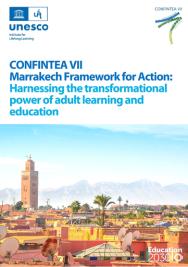
I urge governments and the international community to ensure that the right to education is realized for everyone – no matter their age, who they are, or where they live.

Story: Once illiterate, today Elizabeth inspires others in her community to read
The right to education throughout life is a collective responsibility. A failure to deliver on this would be our collective failure.
Story: For Ruqaia, adult learning was key to breaking the cycle of illiteracy
CONFINTEA blog series

The UNESCO Institute for Lifelong Learning (UIL) celebrated its 70th anniversary in 2022. As the only institute in the United Nations system wholly devoted to lifelong learning, UIL has, for the past seven decades, supported Member States in developing successful policies and practices to provide everyone with the chance to learn. Advancing literacy across the globe, ensuring quality adult education to those who need it most and enhancing lifelong learning in almost 300 cities around the world represent just a few of its key areas of focus.
70 years of UIL action


One of the Institute’s primary missions has always been to advance adult learning and education.

High-level guests and international partners celebrated this milestone with UIL during a two-day event. Participants joined First Mayor of the Free and Hanseatic City of Hamburg Peter Tschentscher, Assistant Director-General for Education at UNESCO Stefania Giannini, and Commissioner for Foreign Cultural Policy at the German Federal Foreign Office Anna Bartels to pay tribute to UIL’s achievements. A symposium on the second day of the celebrations underlined the importance of lifelong learning in the context of climate action, citizenship, the changing world of work, and demographic developments.
The UNESCO Institute for Lifelong Learning contributes to opening up better educational opportunities for people all over the world. Lifelong learning and training is becoming increasingly important in a time of rapid technological progress and social change.
Watch the event recordings


We are in the midst of a massive transformation leading towards a CO2-neutral way of living and producing. Our societies need the tools to deal with new technologies, to implement new policies and to interact in a democratic way – lifelong learning is crucial in this context.
Virtual Exhibition: The power of lifelong learning
Founded as the UNESCO Institute for Education (UIE) only a few years after the end of the Second World War, UIL was entrusted with improving relations between people and nations through international understanding. While the geographical emphasis was at first largely restricted to Germany and Europe, the Institute grew ever more international in its outlook from the 1960s onwards.
Visit our virtual exhibition, Voices from Around the World, commemorating 70 years of UIL, to discover more about our history and to read testimonials from our partners about the importance of lifelong learning today.

Achieving the UN Sustainable Development Goals by 2030, among them SDG 4, is a tough challenge ahead and requires even more efforts in the coming years. UIL is at the forefront of these efforts in the field of education.
We strengthen institutional capacities at both the national and local level by providing training for policy-makers, education providers and practitioners.
Through global, regional and national forums, UIL facilitates the sharing of best practice and methods for promoting equitable, inclusive and flexible access to quality lifelong learning. We also provide bespoke technical support to strengthen stakeholders’ efforts.
UIL Learning Hub
Capacity-building courses on a wide range of topics related to lifelong learning were made available in 2022 on the UIL Learning Hub, a one-stop online multimedia portal for policy advice, capacity development and knowledge sharing.
The UIL Learning Hub offers online training courses, workshops, communities of practice and webinars, and is a repository of lifelong learning tools and guidelines. It has been developed to provide support to Member States for building and sustaining flexible and gender-responsive lifelong learning systems.

Technology training for literacy educators
In 2022, UIL and partners hosted technology training for literacy educators in Bangladesh, Côte d’Ivoire, Egypt and Nigeria. The sessions were within the scope of an initiative by the UNESCO-led Global Education Coalition (GEC) and the Global Alliance for Literacy (GAL), which aims to promote quality literacy provision by increasing the use of technologies in literacy instruction and learning.
Based on the Digital Competency Framework for Literacy Educators and related training modules developed by UIL in 2021/22, the Institute, together with UNESCO regional offices and representatives of government ministries in the four countries, contextualized the modules during a series of workshops to better suit local needs. Relevant national institutions, such as ministries of education, ministries of higher education, teacher-training institutions and colleges, and NGOs took part in each of the country workshops.
Egypt has already begun to roll out technology trainings for literacy educators across the country; the other three countries are expected to soon follow suit. The GEC–GAL initiative will be scaled up in 2023, with an aim to train 100,000 literacy educators from at least 10 GAL countries.

Training educators in digital literacy responds to a major challenge of literacy programmes, namely the availability of learners, whose daily workload is an obstacle to their participation at a fixed time and place. The time and place of learning will now be that of the individual learner.
I benefited so much from this training; I can now understand the significance of digital technology. I made the decision to develop my skills in this field because it is the language of the era. This training was also a wonderful opportunity to develop teamwork and express our opinions.
Family and intergenerational literacy and learning
How does the integration of local and Indigenous knowledges into family and intergenerational learning programmes contribute to improving literacy for all and achieving sustainable development?
In 2022, UIL, in collaboration with the Commonwealth of Learning (COL), and supported by the UNESCO Chair in Adult Literacy and Learning for Social Transformation at the University of East Anglia, launched a self-directed, self-paced online course, Family Learning and Indigenous Knowledges’, to address this question. This course supports the independent learning of academics, researchers and material/curriculum developers in adult learning and community education.

Advancing effective open and distance learning opportunities
To develop literacy programme providers’ capacities to plan and implement open and distance learning (ODL) programmes for youth and adults, UIL and COL trained almost 90 participants from 38 countries during a six-week online course, Implementing Open and Distance Learning for Youth and Adult Literacy. Participants learned how to develop and implement contextually relevant and needs-based youth and adult literacy curricula that employ ODL approaches.

Professionalisation of adult educators
A shortage of professional adult educators hinders progress in providing lifelong learning opportunities for everyone. The updated Curriculum globALE competency framework, which was developed jointly by the German Institute for Adult Education (DIE), DVV International, the International Council for Adult Education (ICAE) and UIL, aims to address this. Curriculum globALE can easily be contextualized to national and regional environments. In 2022, Egypt introduced it nationally with the support of the UNESCO Cairo Office, UIL and DVV International.

Curriculum globALE is a vital instrument for the training of teaching staff working in adult education in Egypt.
Measuring literacy programme participants’ learning outcomes
The aim of the Action Research: Measuring Literacy Programme Participants’ Learning Outcomes (RAMAA) initiative is to build the capacities of education stakeholders in 12 French-speaking African countries to evaluate and monitor the quality of youth and adult literacy programmes.
Moreover, it is designed to develop national capacities for evaluating learning outcomes, and provides policy-makers and development partners with reliable, contextualized data about the quality of youth and adult literacy programmes in the RAMAA countries.
During a side event that took place as part of the International Literacy Day 2022 celebrations in Abidjan, Côte d’Ivoire, on 9 September, 11 ministers of education adopted the Abidjan Declaration, which underlines the relevance of RAMAA.
Additional RAMAA activities that UIL undertook in 2022 include:
- a technical workshop to support the capacities of national teams to prepare a pilot survey in their countries;
- providing support to Chad for the revision of its literacy programme. Training modules for literacy teachers are now being improved with the support of UIL, which will be rolled out together with a new training manual;
- convening two ministerial meetings with RAMAA country officials. This resulted in the adoption of the Abidjan Declaration, which commits RAMAA’s ministers to allocating the necessary funds to increase the implementation of the project. The ministers also agreed to broaden the scope of RAMAA by considering educational alternatives, and renamed the initiative ‘Action Research on Measuring Literacy Learning and Educational Alternatives’ (RAMAED).

A supportive policy environment is fundamental to the development of robust lifelong learning opportunities that are available to everyone. In 2022, UIL supported seven countries in the development of their lifelong learning policies: Côte d’Ivoire, Kenya, Mongolia, Nepal, Nigeria, Oman and the People’s Republic of China.
A new lifelong learning policy for Mongolia
As part of a workshop that was organized with the support of UIL, representatives of Mongolian Government ministries worked on a policy draft that will seek to strengthen recognition of prior learning and establish cross-sectoral governance mechanisms to promote lifelong learning in the country.
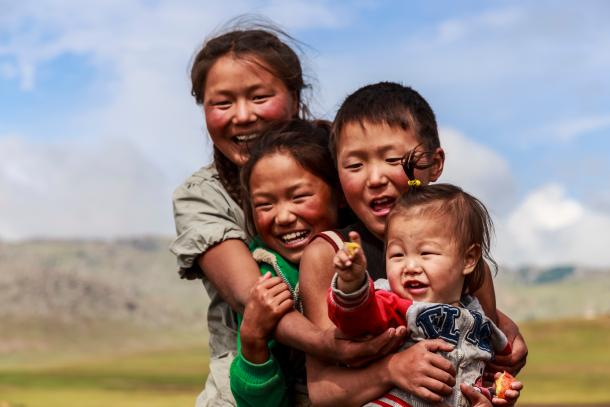
For Mongolia, this training was highly effective because we have reached a common understanding of lifelong learning at all levels of education, and we have been able to coordinate with other sectors and civil society organizations on lifelong learning concepts, priorities and beneficiaries.
Promoting a culture of lifelong learning in Nepal
UIL supported representatives of Nepal to develop a visionary policy document that addresses several priority areas to promote a culture of lifelong learning, including the establishment and promotion of community learning centres, fostering lifelong learning through non-formal and open education, and ensuring lifelong learning is inclusive.

The capacity-building workshop helped us develop an informed and effective policy and strategy in our national context while taking future global concerns into account.
Working towards a comprehensive lifelong learning policy framework in Nigeria
UIL also supported a team from Nigeria with its preparations for a policy framework for lifelong learning, which is being developed to supplement existing education policies.

Prior to the workshop, the perception or understanding of the lifelong learning concept was limited to literacy for specific target groups. Indeed, the workshop was an eye-opener and has further broadened my horizon to view lifelong learning beyond the three ‘Rs’ [reading, writing and arithmetic] to literacies that encompass all aspects of human endeavour.
Increased support for the learning city concept and non-formal education in Oman
Education stakeholders in Oman developed with UIL support a draft lifelong learning strategy that seeks to increase the number of non-formal education programmes in the country and promotes the learning city approach and community learning centres.

The UIL workshop had both a strong theoretical grounding in the [lifelong learning] concept as well as examples of practical experiences and trends from other countries that have advanced in making it a reality for all.
Developing a lifelong learning strategy in Côte d’Ivoire
Aiming to establish a sustainable social pact to revitalize and improve the quality of its education systems, the Government of Côte d’Ivoire launched États Généraux de l'Éducation Nationale et de l'Alphabétisation (Assembly on national education and literacy; EGENA). UIL supported the work of the country’s Literacy and Learning Society Commission, one of six commissions tasked with reviewing the educational situation in the country in order to make recommendations for schools, training and lifelong learning. Next, UIL, together with further UNESCO entities, will provide support for two major activities in line with the recommendations: the revision of the national literacy strategy and development of a national lifelong learning strategy.
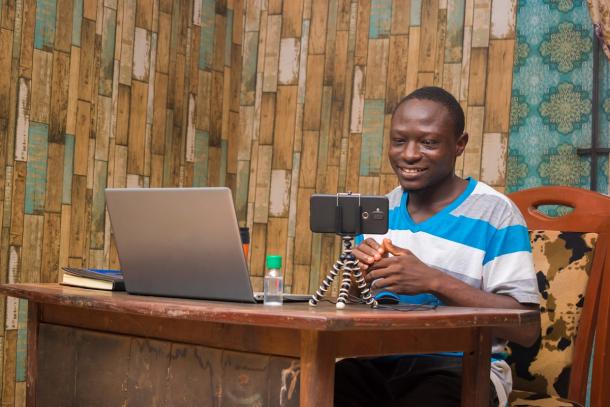
Promoting lifelong learning for older learners in the People’s Republic of China
During a UIL workshop, delegates from open universities in the People’s Republic of China produced an action plan focused on the role of open universities in promoting lifelong learning for older learners across the country.

Lifelong learning policy development strengthened in Kenya
UIL helped shape a national policy dialogue in Kenya in February 2022, bringing together stakeholders across and beyond the Ministry of Education to set the course for lifelong learning policy development following the country’s previous participation in a UIL lifelong learning workshop.

UNESCO Global Network of Learning cities
With more than half of humanity living in urban areas, cities have a key role to play in making lifelong learning a reality for all. The UIL-coordinated UNESCO Global Network of learning Cities (GNLC) works with 294 cities from all world regions to turn this vision into reality.
The network supports the achievement of all 17 SDGs, in particular SDG 4 (‘Ensure inclusive and equitable quality education and promote lifelong learning opportunities for all’) and SDG 11 (‘Make cities and human settlements inclusive, safe, resilient and sustainable’).
Learning cities promote green and healthy environments, strive to achieve equity and inclusion, and support decent work and entrepreneurship. They are therefore key drivers of local-level sustainability in both urban and rural areas.

The GNLC welcomes 77 new members from 44 countries
In recognition of their outstanding efforts to make lifelong learning a reality for all at the local level, 77 cities from 44 countries joined the UNESCO GNLC in 2022. The new members bring the total number of cities within the network to 294, covering 76 countries.
With more than half of humanity living in urban areas, cities have the power to drive lifelong learning policies by implementing and supporting local initiatives, thereby fostering change from the bottom up. The newly admitted UNESCO learning cities have a wealth of expertise and commitment to ensuring that the right to education becomes a reality for people of all ages.

UNESCO learning cities from around the world celebrate World Teachers’ Day
Story: ‘We can only break the poverty cycle through education’
Story: How lifelong learning made Pat believe in himself
When I graduated [from college], I found it amazing because I thought that was a day that was never going to come. That was the day I thought I would never see, because I was going to be a dropout. I was convinced that I could not do this. But the encouragement from the college and the teachers was so great. They made me believe not in the education but in myself!
Lifelong learning for health in cities
Lifelong learning for health (LLLH) has the potential to strengthen cities’ health education provisions, boost their capacities to adapt to the health-related needs of the local population, and strengthen their resilience to future challenges.
In 2022, against the backdrop of the lingering effects brought by the COVID-19 crisis, UIL and the UNESCO Chair Global Health and Education collaborated to develop an enactment guide for the Yeonsu Declaration, the outcome document of the fifth International Conference on Learning Cities (ICLC 5), which affirmed a commitment to LLLH. This roadmap will guide cities in promoting lifelong learning for health and was operationalized during a three-part webinar series.




Global Alliance for Literacy
An estimated 763 million adults worldwide still lack basic literacy and numeracy skills – two-thirds of whom are women.
Southern Asia is home to almost one-half of this global population, while 27% live in sub-Saharan Africa. The other 10% are in East and South-East Asia, 9% in Northern Africa and Western Asia, and about 4% live in Latin America and the Caribbean.
Concerted effort is needed in policy development and financial investment to safeguard literacy for all, especially for those from greater disadvantage. To this end, the Global Alliance for Literacy within the Framework of Lifelong Learning (GAL) was established in 2016 to advance global literacy efforts and address the challenges to promoting literacy in its member countries.
In 2022, in its capacity as GAL Secretariat, UIL:
- coordinated the GEC–GAL initiative aimed at training literacy educators in GAL countries to harness the power of information and communication technologies (ICTs) to broaden the scope of their teaching.
- welcomed the Kingdom of Morocco as a new member of the alliance.
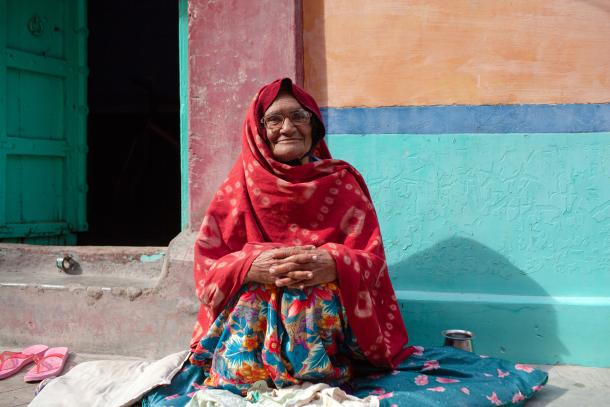
Shanghai Open University
UIL is partnering with Shanghai Open University (SOU) in the People’s Republic of China to promote research, develop and disseminate resources, and strengthen institutional capacities in the field of lifelong learning worldwide.
At the core of this partnership is research into the role of universities for advancing lifelong learning, capacity-building initiatives, and the establishment of an online resource centre. A UIL-SOU Project Cooperation Office has been established at SOU in Shanghai to support these activities.
Within the framework of this partnership, UIL and SOU draw on their respective areas of expertise and the outcomes of past collaborative efforts to promote lifelong learning at the global level.

We produce data and knowledge to help countries strengthen their education systems to promote sustainable and inclusive lifelong learning initiatives.
Understanding how to invest in and develop effective and inclusive lifelong learning systems and strategies requires data on people’s skills and the extent to which their skills enable them to participate in society.
Reliable data and targeted knowledge production are at the heart of achieving the Sustainable Development Goals (SDGs), including SDG 4 on education and lifelong learning. By monitoring and evaluating policies and programmes, high-quality data foster evidence-based policy-making to improve skills governance and learning ecosystems.
UIL produces comparable, gender-disaggregated data and findings on participants, programmes, stakeholders and policies in formal, non-formal and informal education. UIL data inform capacity-building activities in UNESCO Member States at national and local levels to promote policy support and research.

Fifth Global Report on Adult Learning and Education
The main challenge to providing adult learning and education across the globe is ensuring it reaches those who need it most. This was the key message of UNESCO’s fifth Global Report on Adult Learning and Education (GRALE 5), which was published on 15 June 2022, during the Seventh International Conference on Adult Education (CONFINTEA VII) in Marrakech, Kingdom of Morocco.
The report, prepared by UIL, shows that, while there is progress, notably in the participation of women, those who need adult education the most – that is, disadvantaged and vulnerable groups, such as Indigenous learners, rural populations, migrants, older citizens, people with disabilities and prisoners – are deprived of access to such learning opportunities.
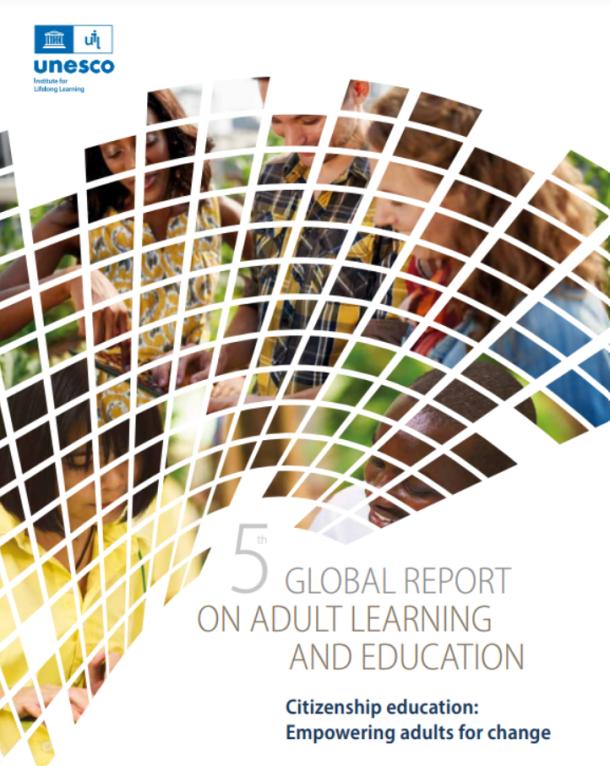
About 60 per cent of countries reported no improvement in the participation of people with disabilities, migrants or prisoners in adult learning and education. Moreover, 24 per cent of countries reported that the participation of rural populations had declined. Participation of older adults also decreased in 24 per cent of the 159 countries surveyed.
GRALE 5 calls for a major change in Member States’ approach to adult learning and education backed by adequate investment to ensure that everyone has the opportunity to benefit from such opportunities.
Handbook on lifelong learning
UIL also launched its much-anticipated publication, Making Lifelong Learning a Reality: A Handbook, during CONFINTEA VII. The handbook provides information, evidence and basic conceptual models to facilitate the implementation of lifelong learning at national and local levels.
Moreover, it provides examples of international experience and offers guidelines to operationalize lifelong learning in response to major sustainable development issues, in line with the 2030 Agenda for Sustainable Development.
It serves as both a source of inspiration and as a guide for policy-makers and officials responsible for implementing lifelong learning policies. It is the basis of various capacity-building activities that have since been initiated by UIL.

The International Review of Education – Journal of Lifelong Learning
Edited by UIL, the International Review of Education – Journal of Lifelong Learning is the world’s longest-running journal of comparative education. It publishes peer-reviewed research articles on lifelong learning policy and practice with a special focus on adult education, non-formal education and literacy, and formal education, viewed through the lens of lifelong learning.
Six issues of the journal were published in 2022, including three special issues on ‘Transnational migration, refugee studies and lifelong learning’, ‘Strengthening the future of adult education and lifelong learning for all: Building bridges between CONFINTEA and the SDGs’ and ‘The Faure report: 50 years on’.

Higher education institutions’ role in lifelong learning
While the higher education sector constitutes a huge potential for promoting lifelong learning, its actual contribution to realizing this effort is far from being realized. Many universities continue to prioritize academic excellence and research; less attention is paid to widening access to and participation in learning opportunities for adult learners from diverse demographics. Addressing this discrepancy requires the transformation of higher education institutions (HEIs) into ‘lifelong learning institutions’.
To further explore these issues and provide guidance to policy-makers and HEIs, UIL and SOU conducted a comprehensive research project on the contribution of HEIs to lifelong learning.
In 2022, with the support of SOU, UIL:
- developed a global report on the contribution of HEIs to lifelong learning. The report is based on a survey, which was implemented together with the International Association of Universities (IAU), and to which almost 400 HEIs responded;
- published a policy brief on the contribution of HEIs to lifelong learning;
- presented these findings in May 2022, during the high-level UNESCO World Higher Education Conference (WHEC2022) in Barcelona, Spain.
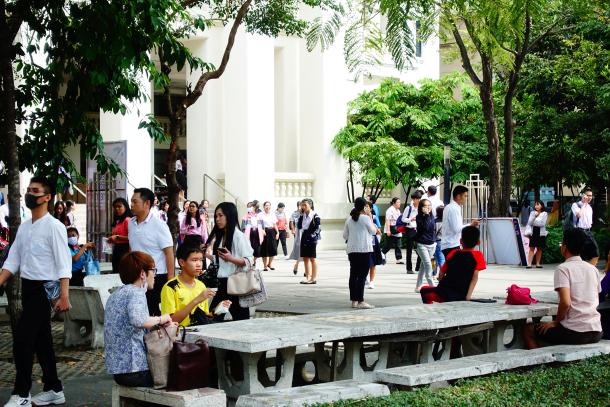
Key data
Refugees and migrants
Literacy is central to a person’s lifelong learning journey. It is also fundamental to the empowerment of refugees, migrants and internally displaced persons (IDPs).
Literacy contributes to resilience building, improved self-confidence and self-esteem, greater prospects for employment, better health outcomes, a stronger sense of agency, and motivation to learn and to socially integrate.
To mark International Literacy Day 2022, UIL, with the support of the Swedish International Development Cooperation Agency (SIDA), launched two publications on the role of ICTs for facilitating the delivery of education and literacy programmes to meet the complex needs of refugees, migrants and IDPs.
Analysis of the programmes presented in the publications reveals that ICTs play an important role in overcoming barriers to learning for refugees, migrants and IDPs. Strategies to increase the use of ICTs are provided in the report and are elaborated across six thematic areas: (1) access and inclusion, (2) capacity-building of teachers and educators, (3) relevant content and innovative andragogy, (4) monitoring and evaluation, (5) strategic partnerships, and (6) recognition, validation and accreditation of learning.
Resources


everyday-life Practices and Skills Survey (e-PASS)
The everyday-life Practices and Skills Survey (e-PASS) is a simple, cost-effective, flexible and practical method for assessing the literacy and numeracy skills of individuals aged 15 and older.
It collects high-quality data on adolescent and adult literacy through national household surveys. The assessment package consists of a household questionnaire that focuses on occupational and the everyday use of literacy and numeracy skills, a tablet-based application, a short cognitive questionnaire that assesses these skills, and a set of guidelines and technical documents. The latter have also been adapted for the development of an online course.
E-PASS provides reliable and comparable information based on sound methodology to national and international policy-makers to assist them in planning, developing and monitoring programmes. The e-PASS methodology and tools enable Member States to generate data for reporting on SDG 4, Target 4.6, Indicator 4.6.1 to support knowledge and capacity-building in participating countries.
In 2022, UIL worked with representatives of Albania and Romania on the implementation of e-PASS in their respective countries.

Global Alliance to Monitor Learning (GAML)
To meet the 17 SDGs, accurate global measures of learning outcomes are essential.
The Global Alliance to Monitor Learning (GAML), an initiative led by the UNESCO Institute for Statistics (UIS), supports national strategies for measuring learning, and promotes international reporting related to SDG 4.
Since the inception of GAML, UIL has taken a lead role in monitoring SDG indicator 4.6.1 (‘Ensure that all youth and a substantial proposition of adults, both men and women, achieve literacy and numeracy’).
Together with the Organisation for Economic Co-operation and Development (OECD), the Institute chairs Taskforce 4.6, convening meetings of experts and partners to advance conceptual, methodological and reporting frameworks for measuring and monitoring adult literacy and numeracy.
UIL Governing Board: Members
| Full member | Alternate |
|---|---|
| Mr Daniel BARIL * **, Director General, Institute for Cooperation for Adult Education, Canada | Mr Pierre DORAY, Professor, University of Québec, Canada |
| Ms Sarah ANYANG AGBOR * **, The Forum for African Women Educationalists (FAWE) Africa Board; Former Commissioner for Human Resources, Science and Technology African Union Commission, Addis Ababa, Ethiopia, Republic of Cameroon | Mr Edward Oben AKO, Pro-Chancellor of the University of Buea; Former Rector of the University of Maroua, Republic of Cameroon |
| Ms Zohour ALAOUI, Former President of the UNESCO General Conference, Ambassador of the Kingdom of Morocco in Berlin, Morocco | |
| Mr Abdel Rahamane BABA-MOUSSA, Secretary-General, Conference of Ministers of Education of the States and Governments of the Francophonie, Benin | Ms Kanlé J. C. NAPPORN, Member of the Centre de Pédagogie Universitaire Assurance Qualité, Benin |
| Ms Rudo Mabel CHITIGA, Former Permanent Secretary Ministry of Women’s Affairs Community, Small + Medium Enterprises Development, Zimbabwe | Mr Davidson MIDZI, Chairman/Senior Lecturer, Adult Education Department, University of Zimbabwe, Zimbabwe |
| Mr Jamal BIN HUWAIREB, Chief Executive Officer, Mohamed Bin Rashid Al Maktoum Knowledge Foundation, United Arab Emirates | Mr Wes HARRY, Director of Human Capital, Mohammed Bin Rashid Al Maktoum Mohammed Bin Rashid Al Maktoum Knowledge Foundation, United Arab Emirates |
| Ms Cláudia COSTIN **, Director, Center for Excellence and Innovation of Education Policies (CEIPE-FGV), Brazil | Ms Raquel DE OLIVEIRA, Vice President, Education and Public Policy GIGALIME, Brazil |
| Mr Hartwig LÜDTKE *, Vice-President, German Commission for UNESCO, Federal Republic of Germany | Mr Christoph WULF, Vice-President, German Commission for UNESCO, Federal Republic of Germany |
| Mr Per MAGNUSSON, Senior Programme Manager, Swedish International Development Cooperation Agency (SIDA), Sweden | Mr Stellan ARVIDSSON-HYVING, Programme Manager, Department of Asia, Middle East + Humanitarian Aid, Swedish International Development Cooperation, Sweden |
| Ms Miriam NICADO GARCÍA, Rector, University of Havana, Cuba | |
| Ms Ethel Agnes PASCUA-VALENZUELA, Director, Southeast Asian Ministers of Education Organization Secretariat, Thailand | Mr Kritsachai SAMSOMAN, Deputy Director, Administration and Communication, Southeast Asian Ministers of Education Organization Secretariat, Thailand |
| Mr Jin YANG, Ambassador, Permanent Delegate, Permanent Delegation of the People's Republic of China to UNESCO, People's Republic of China | Mr Zhou ZUOYU, Vice-President, Beijing Normal University, People’s Republic of China |
* Member of the Standing Committee of the UIL Governing Board
** Member of the IRE Editorial Board
Staff 2022
| Name | Place |
| David Atchoarena, Saint Lucia | Annapurna Ayyappan, India |
| Ana Basoglu, Turkey | Cornelia Becker, Germany |
| Madina Bolly, Burkina Faso | Claudia Brandt, Germany |
| Sofia Chatzigianni, Greece | Aleksandra Condor Arroyo, Poland |
| Christina Drews, Germany | Mary Einbinder, France |
| Fiaye K. Elhor, Togo | Edith Hammer, Austria |
| Qiongzhuoma Heimbel, People’s Republic of China | Britta Hoffmann, Germany |
| Alexander Howells, United Kingdom of Great Britain and Northern Ireland | Roselyne Höner, France |
| Nicolas Jonas, France | Jan Kairies, Germany |
| Jennifer Kearns-Willerich, United States of America | Malakkhanim Khalili, Republic of Azerbaijan |
| Maya Kiesselbach, Ireland | Nusrat Jahan, Bangladesh |
| Nora Lorenz, Germany | Lisa Krolak, Germany |
| Marie Macauley, France | Werner Mauch, Germany |
| Christiana Nikolitsa-Winter, Greece | Angela Owusu-Boampong, Ghana |
| Catalina Ponce Vargas, Mexico | Amir Piric, New Zealand |
| Lambrini Rapti-O'Hanlon, Greece | Bettina Reiß, Germany |
| Naomi Rio, France | Katja Römer, Germany |
| Claire Schumacher, Canada | Cendrine Sebastiani, France |
| Samah Shalaby, Arab Republic of Egypt | Susanne Sonnek, Germany |
| Paul Stanistreet, United Kingdom of Great Britain and Northern Ireland | Larissa Steppin, Germany |
| Mohammed Taleb Zahoor, Islamic Republic of Iran | Raúl Valdés-Cotera, Mexico |
| Mo Wang, People’s Republic of China | Rakhat Zholdoshalieva, Kyrgyz Republic |
| Jian Xi Teng, Republic of Singapore |
Visiting Researcher
| Name | Place |
| Hyo Jeong So, Republic of Korea |
Interns
| Name | Place |
| Tania Aramburo, Mexico | Rutvi Ashar, India |
| Diego Ayala Caceres, the Republic of Paraguay | Sarah Blessed Sayah, Nigeria |
| Jiyi Choi, the Republic of Korea | Nina Deljarrie, France |
| Katharina Dürmeier, Germany | Ziyu Ge, the People's Republic of China |
| Patrick Guerra Peixe, Canada | Sjelle Hiebner, Germany |
| John Horstmann, Germany | Sandra Jakobsson, Sweden |
| Brandon Johnson, United States of America | Katie Jones, United Kingdom of Great Britain and Northern Ireland |
| Claire Kendrich, United States of America | Erica le Mar, France |
| Katarina Mladenovic, France | Zaheera Rajab, South Africa |
| Riccardo Pulicani, Italy | Maria Tomás Rodó Valls, Spain |
| Nishat Taneem, the People's Republic of Bangladesh | Liam Travers, United Kingdom of Great Britain and Northern Ireland |
| Sofia Vigetti, Italy | Cameron Waggett, United States of America |
| Bora Yoon, Republic of Korea | Mengying Xia, People’s Republic of China |
| Shen Xia, People’s Republic of China |
Volunteer
| Name | Place |
| Lena Haberzettl, Germany |
UIL's major partners






2022 main contributions
We would like to thank the following partners for making the work of UIL possible: our host country, Germany; the City of Hamburg; the Swedish International Development Cooperation Agency (SIDA); the Norwegian Government; Shanghai Open University (SOU) – People’s Republic of China; the Kingdom of Morocco Government; and other partners.









